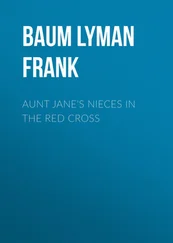17 March
The train to Penn Station; a taxi to West Forty-seventh Street and the Edison Hotel; pick up the lobby phone and ask for Mr. Horvath.
These were my directions.
Peter, it’s me.
Have you eaten lunch?
Not yet.
Good. The tension in his voice jumping through the line into my ear. He clears his throat as if there’s something stuck in it. I’ve ordered room service. Come up to 1412.
I pass through the lobby to the elevators. The lighting everywhere on the brown side of dim, as if the Great Depression never ended. The loiterers mostly out-of-town people, I would guess, Broadway ticket holders and old Jewish men in hats. This establishment not in danger of being mistaken for the Plaza, certainly, or the Pierre, or the famous Carlyle with that delightful black singer Bobby Short singing Cole Porter with martini in hand—not that I expected such luxuries. But then neither, I confess, did I quite envision A Diamond District Depot as my cabdriver referred to this establishment, with a cheery grimace, when I gave him the address. What diamonds I don’t know, I’m sure. The music in the elevator is jazz, at least, lifting my heart, while my nose does battle with the lingering odors of potato latkes and other fried traditions wafting up from the kitchens below.
—
Is this your regular hotel?
I don’t have a regular hotel, Peter says in a defensive tone. This isn’t something I’m in the habit of doing.
You have never stayed here before?
No.
I believe him. However, I can’t help pointing out, we are not really staying here, are we?
His only reply is to pull up the corner of the bedsheet so it covers more of his bare chest.
A moment later, to lighten the mood, I pull the same corner of sheet back down to his navel.
He tugs it up again…
I yank it down…
Both of us laughing now as I roll on top of him. And to my surprise—neither of us any sort of spring chicken— I feel him saluting me down there, battle-station ready. You again? I say with a cheeky smile, for we have been through this happy dance just a bit earlier, before the lunch of blinis and Bulgarian caviar sent up by room service; the bottle of French champagne with the flowers on the label; his attempt at calming his nerves by making small talk— Did you know Johnny Burnette of the Rock and Roll Trio used to be the elevator operator here?— his flinching when I tried to loosen his necktie because it looked as though it was strangling him; his fumbling his way through the relative delicacy of my new French brassiere to reach, hungrily, my middle-aged breasts, which had been waiting for him. And even as my body moves over him this second time, slower and more knowing than before, I find myself thrown back to our beginning together, that first summer on the porch of the cottage on Block Island, the crickets clamoring all around and Martha and little Jean—little Jean with her nightmares—asleep upstairs, and Peter grabbing my hair, twisting my head around, kissing me hard on the mouth, and running away.
Peter…
Oh, Jesus, he groans, as if he is dying.
—
Then it’s separate trains home to separate houses: late afternoon for me, early evening for him. I ride pressed in among the commuter types. Unshowered, fragrant with him, but otherwise well enough disguised. The fellow next to me—camel hair coat, English bulldogs on his necktie—politely offers me a section of his New York Times, which I politely decline.
Ravished and unclean, hardly caring where I am going, I sit with this happiness, my airy new friend, hanging on to its balloon string with both hands.
21 March
Ten minutes past noon my doorbell rings. At first wary—Yasha is at school and perhaps something has happened?—I am then quite astonished.
Peter .
Sorry, but I had to see you.
His overcoat already off, here in my foyer, followed by his suit jacket. Now his necktie, flapping shirttails, shoes hitting the floor.
We never make it upstairs. Afterward, I ask if he would like lunch or coffee while he’s here. He says he would like nothing more than to stay and stay, but he must go, he’ll just make the 1:15 train back to work.
Be careful who sees you, I warn him.
From his expression I can tell that he misunderstands and thinks I mean Martha or Jean, or perhaps local gossips. But that is not who I mean. There are things going on lately that I have told no one about, not even him, certain unknown individuals in the area who have no business paying attention to my doings yet pay attention all the same in ways they assume I do not recognize—they do not know that I am onto them, and I intend to keep it that way.
Dressed and ready to return to the office, Peter opens my front door. A taxi is already waiting at the curb; he must have called it while I was in the bathroom.
You know you make me very happy? he says, giving me a last kiss before departing.
And though I am not his wife, I straighten his tie for him and place my hand flat against his chest, just over his heart, wanting so much to feel the vivid life that thrums inside him at this very moment, silently beating my name.
24 March
In a recent issue of Partisan Review— sent to me out of respect, supposedly, by one of the editors—my former lover Alexsei Kapler gives the following brief interview concerning my defection:
When I heard of her departure I couldn’t believe it. I have my own ideas about Russian women; I have known many. And I believe something terrible, something abnormal must have happened to Svetlana. What she did is unforgivable.
29 March
Someone is watching me. All morning a black sedan of some American make—Chevy Monte Carlo ? Oldsmobile Cutlass Supreme ?—has been parked on the other side of Wilson Road, about thirty degrees to the left of my front door. Inside a man wearing a tan raincoat and black heavy-framed eyeglasses appearing to read the newspaper, but more accurately using it to shield his face from my position at the window in Yasha’s room. Yasha, thank goodness, is at school. If he were here, God help me, I do not know what I would do.
Careful not to make myself visible through the windows, I go to the phone in my room and dial Peter’s office.
Good morning, Wardlow Jenks and Hayes, Peter Horvath’s office.
Beverly, I must speak to Peter right away.
I’m afraid he’s in a meeting, Mrs. Evans.
Please understand, it must be right this second. My life may be at stake.
Now a little pause. For Beverly the secretary already has ideas about me, this I know, theories honed from many such humorless exchanges in the past and her watchdog role in Peter’s affairs. I once imagined that she was in love with Peter to some pathological degree; but when finally I met her with her helmet of dull brown hair and her proper string of family pearls, I understood that her fighting over his turf was more likely a repressed form of class vanity. For all I know, her mother’s maiden name is Jenks.
Fortunately, she’s too well mannered to sigh out loud. I’ll see what I can do. Please hold.
This verb hold, once archaically tender, even romantic in its implications, now a chiseling tool designed to pry my client fingers off the phone. (To say nothing of the contradictory attack of the word please .) Followed by a most insistent piece of recorded Mozart, until Peter’s voice comes breaking through:
Читать дальше












